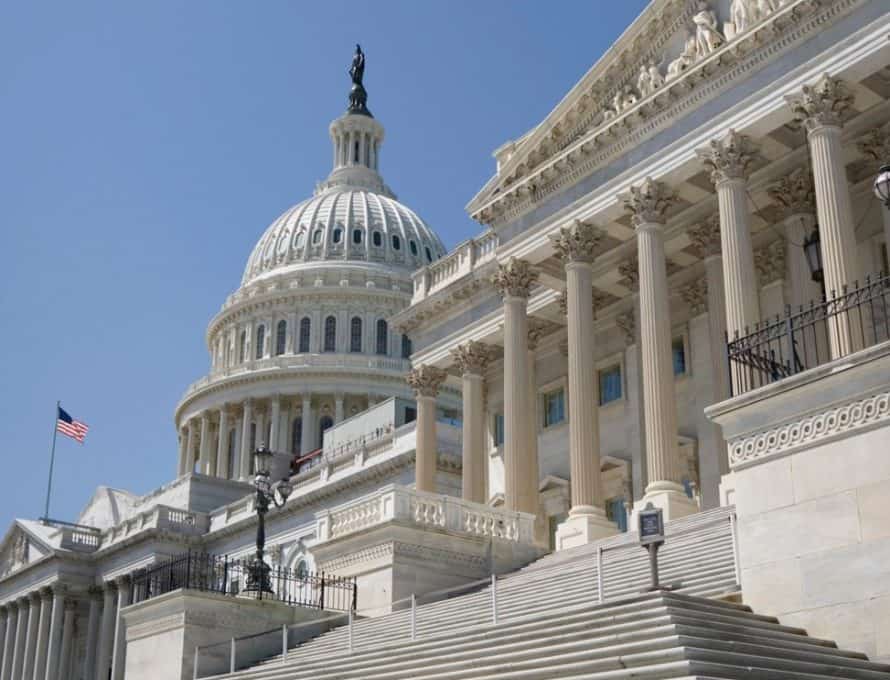The Missouri Baptist Convention has filed a brief in the U.S. Supreme Court in joining other religious groups asking for a sign – that religious freedom trumps local sign codes which discriminate against churches and church plants.
The case, Reed v. Town of Gilbert, originating the Phoenix area, is potentially the most important religious freedom case on the Supreme Court’s docket in the new term beginning Oct. 6.
Michael and Jonathan Whitehead, a father-son legal team in Kansas City, filed the friend-of-the-court brief Sept. 22, pro bono, on behalf of the Missouri Baptist Convention (MBC) and its public policy arm, the Christian Life Commission (CLC). It marked the first time the CLC has filed an amicus curiae brief in the U.S. Supreme Court.
Jonathan Whitehead took the lead in drafting the brief, online at https://tinyurl.com/ox4o6ma. Michael Whitehead, meanwhile, is the MBC’s general counsel. The Whiteheads serve churches and nonprofit organizations with legal needs from formation (for church plants) through legal compliance and preventive law and, when necessary, litigation.
“We filed, in part, to tell the court that this sign code discriminated against churches in general, and small churches in particular,” Jonathan Whitehead said, in violation of the free speech and religion clauses of the First Amendment. “It also violates the assembly clause because the code singled out ‘meeting’ signs,” he noted. “Sign codes and other laws restricting speech must be content-neutral or they are presumptively unconstitutional.”
Don Hinkle, director of public policy for the MBC and liaison with the Christian Life Commission, said the friend-of-the-court brief “also told the court that Southern Baptists care about small churches and church plants like those starting under the Send North America initiative with the North American Mission Board.” Hinkle also is executive editor of The Pathway, MBC’s newsjournal.
The brief highlighted the Missouri convention’s partnership with NAMB in its Send Cities strategy, which has prioritized the planting of new evangelistic churches especially in underserved areas outside the South. NAMB and its state convention partners are investing in church plants in 50 large cities, including the Phoenix area where Gilbert is located.
Church planters often depend on yard signs as the least expensive yet most effective means of communicating to residents the location and time of church services.
The MBC brief states: “People regulating what they consider ‘sign clutter’ are often tempted to regulate sign content as well. The Town of Gilbert, AZ, has failed to resist this temptation.”
The brief cited the Ninth Circuit Court of Appeals assessment that: ‘In an effort to promote a safe, harmonious and pleasant environment — and presumably to insulate itself from challenges under the First Amendment — Gilbert has adopted a sign ordinance that makes one’s head spin to figure out the bounds of its restrictions and exemptions.'”
The MBC brief, “on behalf of many Southern Baptists, would like to say, ‘Amen.'”
“Yet, in spite of this criticism of the confusing code, the Ninth Circuit panel majority makes other heads spin by declaring this content-based law to be content-neutral.”
The town council changed the code’s words from “religious assemblies” to “non-profits” engaged in “qualified events” about “noncommercial” meetings. The effect of the new code words was the same as the old words — church signs were more severely restricted than signs with political and other non-commercial content, the MBC brief notes.
Two of three judges on a Ninth Circuit panel upheld the sign code in spite of Supreme Court precedents which have declared unconstitutional laws which restrict signs or other speech based on the content of the sign. The appeals court said the new code words are content-neutral because they apply to a neutral class of speakers, not to the content of the signs. And the court said government officials had good intentions to promote safety and aesthetes, and were not discriminating against small churches.
The Whitehead brief argues that officials can’t excuse their discrimination by appealing to their “good intentions” to reduce sign clutter. “Bad laws can’t be saved by good intentions,” the brief states. “And bad laws are not made better by increasing the number of people treated badly.”
The original code targeting religious assemblies was not made better by adding “other non-profits” to the class of persons burdened by restrictions, according to the brief.
“No law should treat the speech of churches worse than the speech of other similar speakers,” said Alliance Defending Freedom senior counsel David Cortman, who will argue the case before the Supreme Court. “One look at the political signs Gilbert allows on street corners virtually all year reveals how the town applies stricter rules to church signs than it does to political signs, let alone other noncommercial signs. Sometimes a picture is worth a thousand words.
The case is Reed et al v. Town of Gilbert, AZ, et al. The high court agreed in July to hear the case after the 2-1 vote by the Ninth Circuit panel to allow local governments to impose stricter regulations on size and display of temporary church signs compared to other temporary, non-commercial signs. It is expected that the Supreme Court will hear oral argument in the case sometime early in 2015.
(For additional comments on this case, see Jonathan Whitehead’s blog at http://wp.me/p47YfE-eW).

